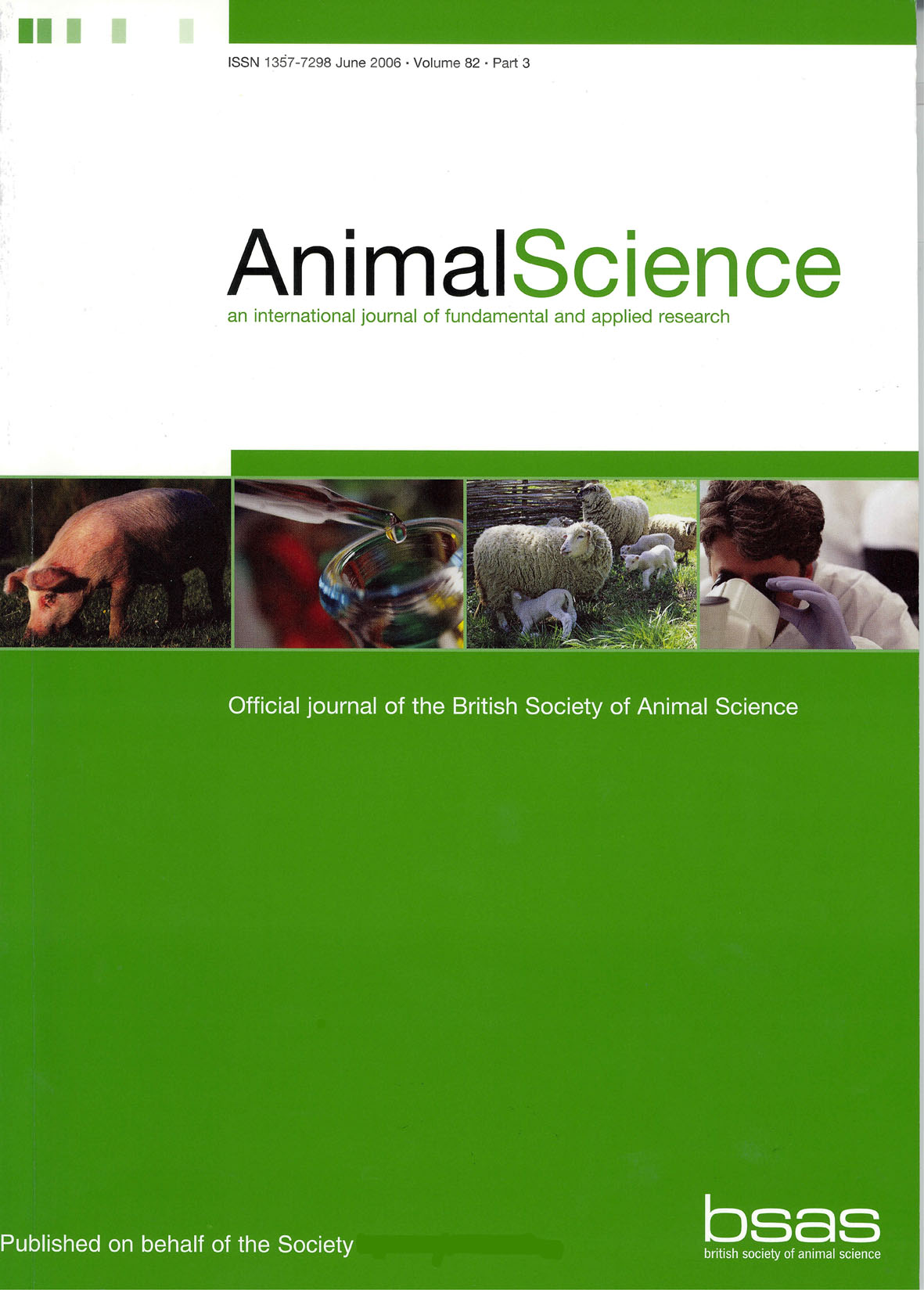Article contents
Estimation of economic weights in genetic improvement using neoclassical production theory: an alternative to rescaling
Published online by Cambridge University Press: 02 September 2010
Abstract
This paper addresses the rescaling controversy in the estimation of economic weights for livestock improvement programmes. A model of genetic improvement based on the neoclassical theory of the firm and incorporating genetic improvement is proposed for the estimation of economic weights. Disparities between estimates of economic weights calculated per animal as opposed to per unit of product, per breeding female or per enterprise disappear when economic weights are calculated using this model. Equivalences of economic weights at the different bases of evaluation, previously obtained by rescaling the production enterprise to a fixed input, output or profit are compared with this model. The conventional approach to the derivation of economic weights is characterized as implicitly making unreasonable assumptions about the behaviour offarm firms.
Extension of the proposed model to the level of the farm product market allows assessment of the distribution of gains from genetic improvement between producers and consumers using the economic surplus approach. In an illustrative example, the distribution of benefits among producers and consumers from genetic improvement in the Ontario cow-calf sector is shown to depend on the elasticity of demand for beef products in the North American market. When the demand for farm output is elastic, a significant proportion of the benefits from genetic improvement would accrue to producers. Conversely, when demand is inelastic, the majority of benefits would accrue to consumers. Economic weights calculated from the perspective of all producers could thus be different from those calculated from the perspective of an individual farmer or society as a whole. Finally, the market level model is used to compare the effects of genetic improvement which enhance product quality with cost-reducing genetic improvements.
- Type
- Research Article
- Information
- Copyright
- Copyright © British Society of Animal Science 1992
References
- 28
- Cited by


